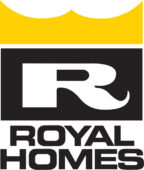Investing in solar power is a huge decision. Since mainstream solar power is relatively new, it is necessary to conduct proper research and inspection first. While the most expensive aspect of solar energy is the equipment, prices vary significantly based on the installer. However, rest assured that solar energy will guarantee savings on your energy bills and reduce your impact on the environment.
Review Your Options
Before considering solar power, you must confirm that your property is suitable for installation.
First, contact a qualified solar assessor to complete a complimentary solar audit of your home. You should also request a cost/benefit survey. Solar assessors will be able to carefully review your energy bills and provide you with an estimate of your potential savings.
They can also make sure your home will get enough sunlight to produce power. Solar systems need full sun to function properly.
Since you’ll need help from building inspectors and power companies, be sure to consult with region-specific resources to find an installer with experience in permitting and installation.
Consider Your Future Needs
If your primary goal is saving money, your solar assessor may suggest a different design than if you are looking to minimize your overall carbon footprint. Your lifestyle is a big influence on your decision.
Your system will be with you for a long time. Most solar panels are expected to last for 20-25 years, although they often last longer. Be sure to size your system for your house but keep any potential changes in energy needs in mind. For example, perhaps you plan on starting a family which could result in your energy needs doubling in the near future.
Prepare Your Home
It’s important to ensure that your solar panels will power an efficient house, rather than one that wastes power. Ensure that your roof is in good shape so that it can support your solar panels. If your roof requires repairs, these should be done before installing solar panels, as it’s much more difficult to repair afterwards.
Trees should also be tended to so that they do not prohibit sun from reaching your solar panels.
You should also be sure that your home is properly insulated, and that any air leaks around windows and doors are properly sealed off. This will help to optimize energy performance and guarantee the warmth and comfort of your home.
Often, older, inefficient appliances can contribute to energy waste. Before retrofitting solar power, it’s a good idea to replace any outdated daily-use appliances with energy-efficient appliances, such as those that are ENERGY STAR® certified.
Secure Rebates and Approval
Depending on where you’re located, your local public works department may offer impressive rebates on the cost or installation of solar panels.
There is a lot of paperwork that goes with solar panel installation. Experienced installers can help you find available grants, loans and tax rebates.
You’ll also want to ensure you have proper approval for your project. This process will vary depending on where you live. However, if you plan on installing solar power in Ontario, a Renewable Energy Approval (REA) will likely be required.
Looking to reduce your carbon footprint further? Learn more about some of the many environmentally friendly aspects of a pre-fab home.
